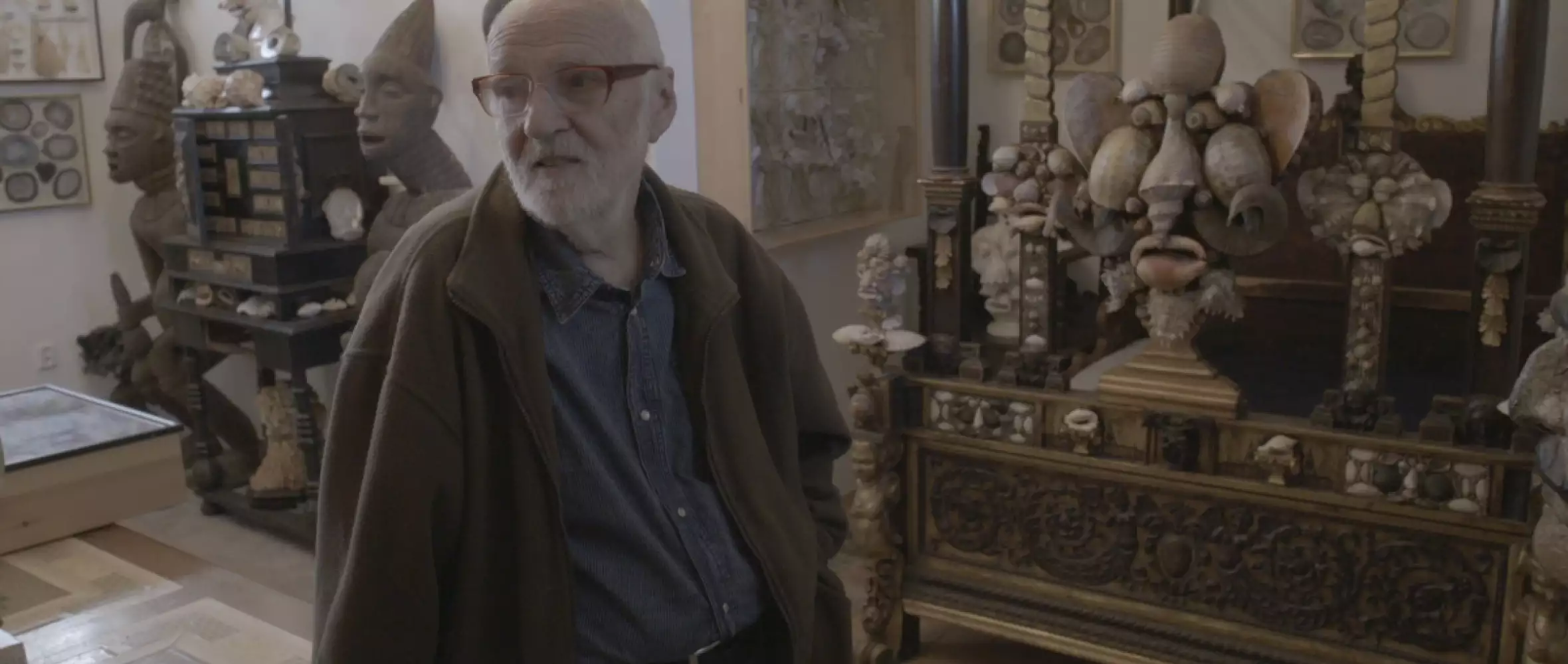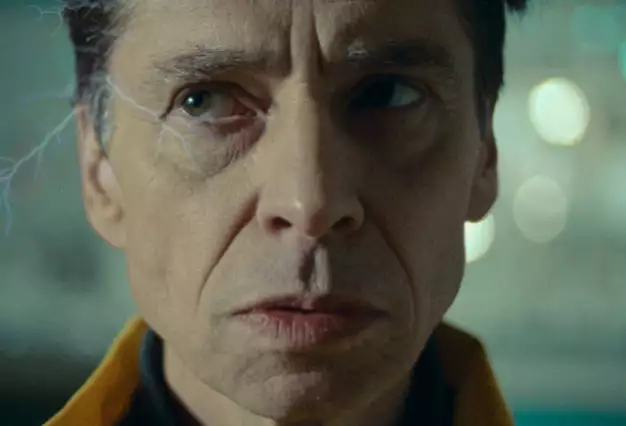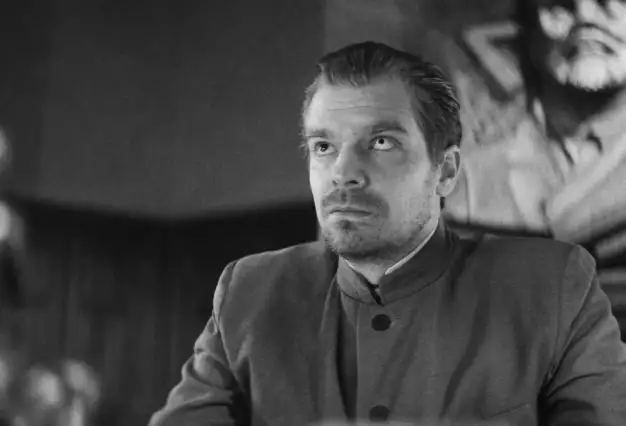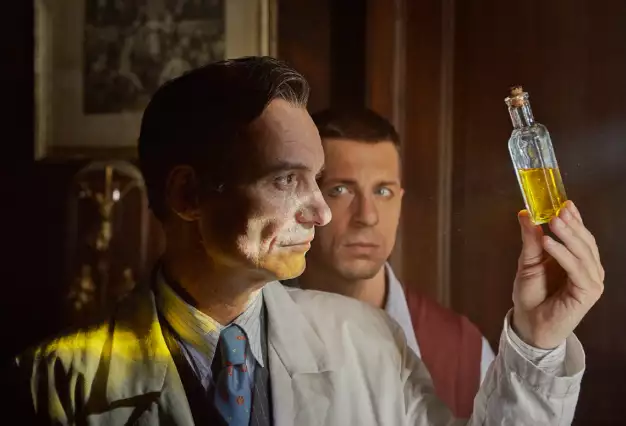
08 January 2020
Jan Švankmajer biopic and three other films head for Rotterdam
Jan Švankmajer biopic and three other films head for Rotterdam

Jan Švankmajer, the world legend of surreal animation, has said he won’t be making another film after Insect. But fans can look forward to the biopic Alchemical Furnace, which was screened in the Deep Focus section at this year’s Rotterdam IFF. Also at this year’s festival were three more Czech films: the live-action Cook F**k Kill, plus the documentaries The Vasulka Effect and Communism and the Net or the End of Representative Democracy, by Karel Vachek.
Article by Hedvika Petrželková for Czech Film magazine / Spring 2020
The Vasulka Effect, which tells the story of Czech video-art pioneer Woody Vašulka, screened in the same section as Alchemical Furnace, while the program titled The Tyger Burns presented the latest opus by Czech documentary master Karel Vachek, Communism and the Net or the End of Representative Democracy. The fourth representative of Czech cinematography in Rotterdam was Mira Fornay, with her fiction film Cook F**k Kill.
There is only one poetry: Jan Švankmajer
Jan Švankmajer (b. 1934) is one of the most acclaimed and popular Czech filmmakers abroad. His peculiar poetics, based on a playful affiliation with surrealism, have enthralled audiences and critics alike ever since his early films, from the shorts The Coffin House (1966) and J.S. Bach: Fantasia G-Moll (1965) to feature films Alice (1988, winner of the Annecy IFF) and Faust (1994), through the short Dimensions of Dialogue (1983, Golden Bear at the Berlin IFF), features Conspirators of Pleasure (1996) and Little Otik (2000), and his most recent, Insects, which premiered in Rotterdam two years ago.
Alchemical Furnace is screening in the “Regained” program of the Deep Focus section, which presents works connected to cinematic history. Directing duo Adam Oľha and Jan Daňhel say their film is not only a portrait of Švankmajer but also of his company, Athanor, mapping out more than 40 years of collaboration between Švankmajer and Jaromír Kallista. Athanor is producing the film in cooperation with the Slovak company PubRes, with support from the Czech Film Fund (EUR 65,385) and the Slovak Audiovisual Fund.
“The aim of the film is to get to the core of the creative world of ‘big child Jan Švankmajer’ and ‘adult child Jaromír Kallista’ and discover how elements of everyday life become magical,” say the creators.
The film is grounded in the “ten commandments” Švankmajer penned as a manifesto for his filmmaking. In them he delineates his approach to cinematography and what he considers to be the universal cornerstones. The commandments are key to understanding Švankmajer’s work, and Alchemical Furnace enters into dialogue with them, highlighting the creative process and the never-ending process of liberation, in the sense of “what is possible as opposed to what is real.”
“Remember that there is only one poetry. The opposite of poetry is professional expertise. Before you start making a film, write a poem, paint a picture, put a collage together, write a novel, an essay, etc. Because only by cultivating universality can you ensure that you will make a good film.” — from Jan Švankmajer’s Ten Commandments
Video art with Icelandic-Czech roots
In the same section as Alchemical Furnace, Rotterdam will also be hosting the Icelandic- Swedish- Czech production The Vasulka Effect. Director Hrafnhildur Gunnarsdóttir first heard of the art duo Steina and Woody Vašulka in the 1980s and has endeavored to bring their work to a wider audience ever since.
The collaboration between video art pioneers Steina (born Steinunn Briem Bjarnadóttir) and Bohuslav (“Woody”) Vašulka dates back to the late 1950s, when they first met in Communist Czechoslovakia: Bohuslav Vašulka was studying at the FAMU film school in Prague and Iceland native Steina was studying violin at the State Music Conservatory. In 1960´s, they traveled to Steina’s native Iceland together and then went on to New York, where in 1971 they set up the famous arts organization The Kitchen, which became an important center for independent electronic and performing art, hosting such legends as Jimi Hendrix, Arthur Russell, Bill Viola, Laurie Anderson, and Andy Warhol. The couple later settled in Santa Fe.
Although sometimes called the grandparents of the “YouTube generation,” the Vasulkas were not well known among the general public.
“I increasingly realized what a fundamental impact the Vasulkas and other video artists had on bringing together video and computer technology, and how their art and research influenced everyday things,” says Gunnarsdóttir. Her film points out the transformation of art and society with the arrival of video from the 1960s onwards. The period is sometimes called a second renaissance, when video art contributed to the decentralization of art and mass media.
Unfortunately, Woody Vašulka himself did not live to see the Rotterdam screening, as the Brno native (b. 1937) passed away on December 20, 2019.
Everyday demons: Cook F**k Kill
Like Jan Švankmajer, director Mira Fornay is not new to Rotterdam, having won the main prize, the Tiger Hivos Award, in 2013 for her drama My Dog Killer. Her latest work, Cook F**k Kill, a Czech-Slovak coproduction (Cineart TV Prague) supported by the Czech Film Fund (EUR 305,769), was screened in the main program of the Voices section.
The film, centered on the subject of domestic violence, tells the story of Jaroslav K., who is battling his wife, Blanka, for custody of their children. In order to get them, he not only has to work things out with his domineering mother, Dorota, but also come to terms with his demons. His metaphorical journey, structured like a computer game, demands more sacrifices than any viewer can anticipate.
The specter of communism: the ageless Karel Vachek
Communism and the Net or the End of Representative Democracy is the title of the latest opus by legendary Czech documentarist Karel Vachek (b. 1940), produced by Background Films. It was screen in the section called The Tyger Burns in Rotterdam.
According to the official synopsis, this nearly six-hour “film novel” seeks “a way to make the world a better place to live in.” It is divided into four parts, examining contemporary politics, philosophy, religion, and art. Fifty years after the Prague Spring and thirty years after the Velvet Revolution, Vachek takes stock of social developments and finds the only possible future in direct democracy, which he believes will let humanity come together through a computer network.
A peculiar place in Vachek’s universe is the staffroom of FAMU’s documentary film department, where he has taught for 25 years and now invites important contemporaries and students for discussions in front of the camera. All of these people intersect in the film and together they point out the often humorous paradoxes and contradictions of the time. You can read more about Vachek’s work and this film on page xy.
Czechs have a rich history with the Rotterdam festival, including where awards are concerned. Three Czech films in particular have left their mark since 1998. In addition to Mira Fornay’s film, the festival’s grand prize has also gone to Bohdan Sláma, for the film Wild Bees (2001), and Petr Zelenka, for Buttoners (1998).




